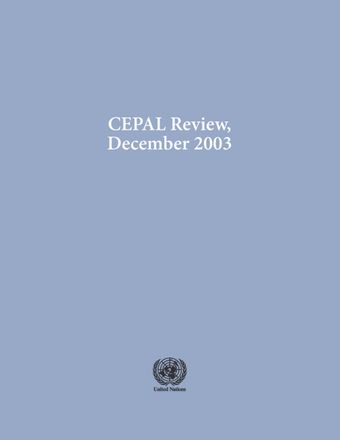-
Colombia’s experience with reserve requirements on capital inflows
- Source: CEPAL Review, Volume 2003, Issue 81, Dec 2003, p. 7 - 31
- Spanish
-
- 08 Dec 2003
Abstract
Smoothing out capital-account cycles and reducing their vulnerability are desirable policy objectives in developing countries. This paper evaluates the advantages of a simple, non-discretionary, preventive (prudential) price-based incentive that severely penalizes short-term foreign currency liabilities. In particular, it examines the effectiveness of controls on capital inflows in Colombia during the 1990s. The analysis finds evidence supporting the conclusion that these controls were effective in reducing the overall volume of net capital inflows and that they helped to improve the term structure offoreign borrowing. An econometric analysis suggests that capital flows were directly related to interest rate differentials, controlling for the additional cost imposed by unremunerated reserve requirements on foreign borrowing. Hence, the Colombian system of controls on foreign borrowing was both an effective macroeconomic policy that allowed the country’ to gain a degree of monetary and exchange-rate control and a useful “liability policy” that helped improve the term structure of its foreign debt.





